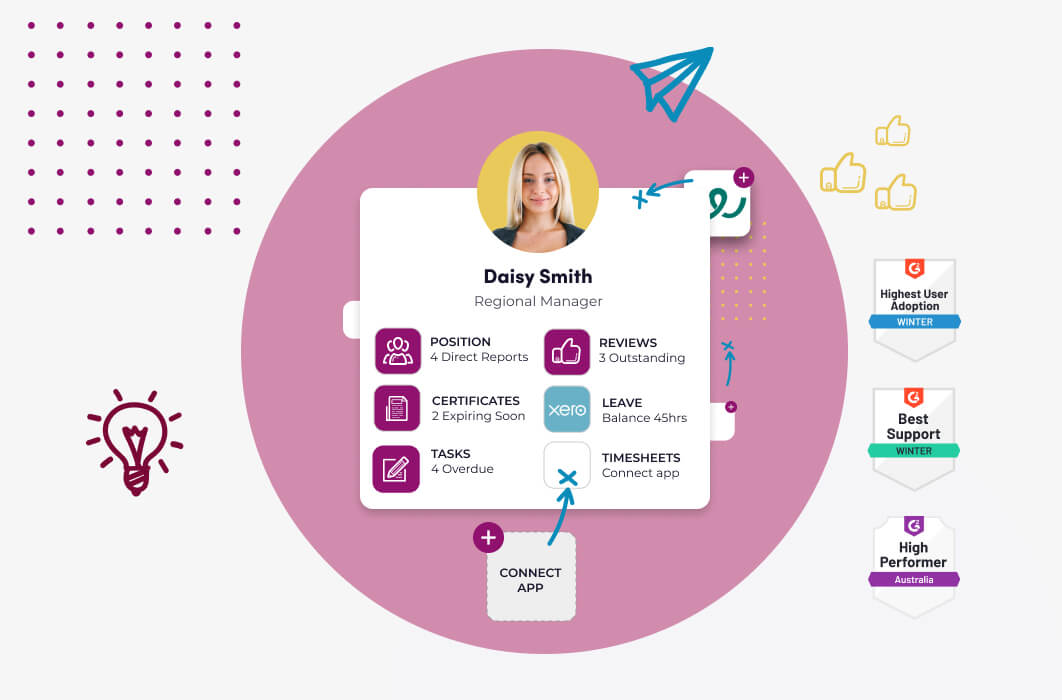From employment contracts and emergency contact forms to training records and licences, HR departments are responsible for safeguarding and organising a wide array of critical HR documents. In this article, we will delve into the significance of organising HR paperwork and explore the benefits it offers to HR managers.
Benefits of organising your HR paperwork
As an HR manager, it is crucial to ensure that employee paperwork is well-organised for several important reasons.
Compliance with legal and regulatory requirements
Maintaining organised employee paperwork helps ensure compliance with various legal and regulatory obligations. Governments have specific requirements related to employment contracts, tax forms, work permits, health and safety records, and more. By keeping employee paperwork organised, you can easily access and provide the necessary documentation when required during audits or legal proceedings.
Efficient record-keeping
Employee paperwork serves as a vital record of employment history, including hiring details, compensation, performance evaluations, disciplinary actions, and termination records. By organising these documents systematically, HR managers can efficiently track and retrieve information, which can be crucial for making informed decisions, conducting performance reviews, handling disputes, or providing references.
Confidentiality and data protection
Employee paperwork often contains sensitive and confidential information, such as tax file numbers, bank details, medical records, and performance evaluations. By organising and securing these documents properly, you can help safeguard employee privacy and prevent unauthorised access, reducing the risk of data breaches and potential legal liabilities.
Streamlined processes
Well-organised paperwork enables HR managers to streamline administrative processes. When employee documents are easily accessible, it becomes quicker and more efficient to onboard new employees, process payroll, handle employee inquiries, and respond to internal or external requests. It saves time and reduces errors, enhancing overall operational efficiency.
Succession planning and talent development
Organised employee paperwork facilitates effective succession planning and talent development initiatives. By reviewing employee performance, skills, and training records, HR managers can identify high-potential individuals, determine skill gaps within the organisation, and develop strategies to nurture talent and ensure a smooth transition during promotions or departures.
Historical analysis and decision-making
Maintaining well-organised employee paperwork provides valuable historical data for analysis and decision-making. HR managers can track trends in turnover rates, identify patterns of performance or disciplinary issues, and assess the effectiveness of HR policies and procedures. Such insights enable informed decision-making for improving employee satisfaction, engagement, and organisational effectiveness.
How HR teams organise their HR paperwork
Track and manage expiration dates
Maintain a system for tracking and managing document expiration dates, such as employee certifications, permits, or licenses. Use reminders or notifications to ensure timely renewal or updates, reducing the risk of non-compliance.
Worknice expiry tracking
Worknice has just launched new features to maintain a system for tracking and managing document expiration dates, such as employee certifications, permits, or licenses.
Digitise and automate processes with HR software
Whenever possible, transition to digital document management systems to minimise reliance on physical paperwork. Digitising documents not only saves physical space but also improves accessibility, searchability, and collaboration. Explore HR software solutions that offer document management features, automation, and secure storage.



